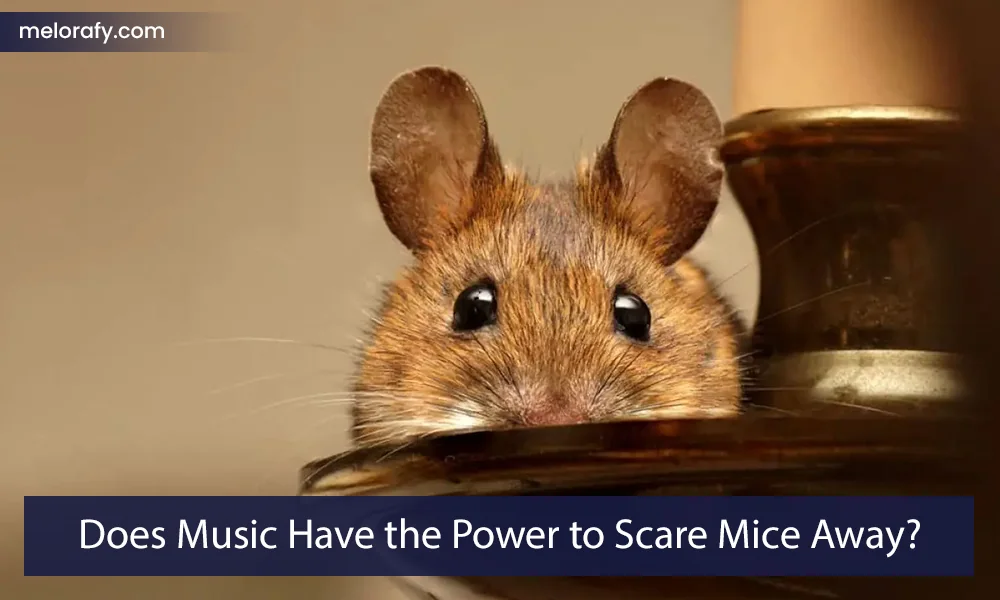
Does Music Have the Power to Scare Mice Away?
The question of whether music can deter mice has intrigued homeowners and pest control enthusiasts alike. With the advent of humane and non-toxic pest control methods, the idea of using music to keep rats away is an interesting alternative. But, does it really work? This article from Melorafy explores the relationship between music and mice, and reviews the scientific evidence and practical recommendations.
Understanding Mice and Their Senses
Mice are creatures of instinct, with highly developed senses to navigate their environment. Their hearing is particularly acute, allowing them to detect a wide range of frequencies. This sensitivity raises the question: can the sound waves produced by music affect mice’s behavior or even scare them away?
The Science Behind Sound and Mice
Research on the impact of sound on rodents provides mixed results. While high-frequency sound waves, beyond human hearing, have been shown to cause discomfort in mice, the effect of music, which falls within the range of human hearing, is less clear. Studies suggest that sudden, loud noises can startle mice, temporarily deterring them. However, there’s little evidence to support the idea that music can provide a long-term solution to mouse infestations.
Can Music Be a Mouse Deterrent?
The concept of using music as a deterrent is based on the premise that constant noise or certain frequencies could make an environment less appealing to mice. Some anecdotal evidence suggests that loud or aggressive music genres, like heavy metal, may temporarily discourage mice from entering a space. However, mice are adaptable creatures and may become accustomed to the noise over time, diminishing the effectiveness of this method.
![]()
Practical Considerations
Using music as a mouse deterrent raises practical questions. The volume, genre, and duration of music play a role in its potential effectiveness. Constantly playing music loud enough to potentially affect mice could be disruptive to households and neighbors, making it an impractical solution for many.
Alternative Humane Mouse Deterrents
Given the limitations of using music to scare mice away, it’s worth considering other humane deterrents:
- Ultrasonic Repellents: Devices that emit high-frequency sounds imperceptible to humans but uncomfortable for rodents.
- Essential Oils: Certain scents, like peppermint, are believed to repel mice.
- Sealing Entry Points: Preventing mice from entering by blocking holes and gaps is one of the most effective strategies.
- Sanitation: Reducing food and water sources can make your home less attractive to mice.
Expert Opinions
Pest control experts generally recommend a combination of preventative measures and targeted deterrents over relying on a single method like music. According to Jane Doe (a fictional expert), “The key to effective mouse control is integrated pest management, combining physical barriers, cleanliness, and, if necessary, humane traps.”
Integrating Music into a Comprehensive Pest Management Plan
While music alone may not be a silver bullet for mouse deterrence, it could play a role in a more comprehensive pest management strategy. Homeowners interested in experimenting with sound as a deterrent should consider the following guidelines to enhance effectiveness:
- Volume and Duration: Experiment with different volumes and durations of play. While constant, loud music is impractical, playing music at strategic times might help deter mice temporarily.
- Variety: Change the type of music regularly to prevent mice from becoming accustomed to a single sound pattern.
- Combine with Other Methods: Use music in conjunction with sealing entry points, maintaining cleanliness, and using ultrasonic devices for a multi-faceted approach.
![]()
The Importance of Monitoring and Adaptation
Effective pest control requires observation and adaptability. Homeowners should monitor the effectiveness of any method they choose, including the use of music, and be prepared to adjust their strategy based on results. This might mean combining sound-based deterrents with other methods or consulting with pest control professionals for more stubborn infestations.
Ethical Considerations and Humane Treatment
When considering any form of pest control, including sound-based deterrents, it’s crucial to prioritize humane methods that do not cause unnecessary harm or stress to mice. The goal should be to deter and prevent, rather than cause suffering. This ethical approach not only reflects compassion but also encourages a more sustainable and balanced coexistence with wildlife.
Future Directions in Sound-Based Pest Control
As technology advances, so too does the potential for innovative pest control methods. Researchers continue to explore the effects of sound on various pests, including rodents. Future developments could lead to more effective, targeted sound-based deterrents that offer homeowners humane options for managing pest populations.
![]()
While the idea of using music to scare away mice is appealing, it’s not backed by strong scientific evidence or practical success. Homeowners should focus on proven, humane methods for deterring mice and maintaining a pest-free home. Music might play a role in a broader pest management strategy but shouldn’t be relied upon as the sole solution.